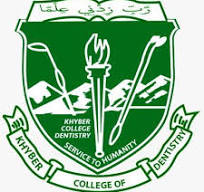POSTGRADUATE DENTISTRY IN PAKISTAN
DOI:
https://doi.org/10.33279/jkcd.v3i1.509Abstract
Dentistry in Pakistan has evolved to the point where a bachelor’s degree can only promise a relatively successful career in private practice. The above statement holds more weight for dentists practicing in rural or semi-urban areas. Thus the dental graduate of today is not only compelled by interest but also by the competitive job market to pursue postgraduate studies.
A variety of M.Sc, MDS, MPhil, Ph.D and Fellowship programs are available locally and internationally. The former is the most availed route amongst local dentists due to the high fee structure, preferential criteria and time consuming nature of international programs. The bulk of dental graduates come from low to middle class families, therefore the most commonly trodden path is giving FCPS Part I after the completion of house job. The fellowship of the College of Physicians and Surgeons (FCPS) offers 4 year training in the fields of Oral and maxillofacial Surgery, Operative and Endodontics, Prosthodontics and Orthodontics. Other specialties such as Periodontics is only offered as Membership programs (MCPS) due to paucity of fellowship holders in these specialties. Given the lack of tuition fees, high standard of examination and recognition in the Middle East and other countries, it is therefore no surprise that FCPS holders comprise the majority of the specialists in Pakistan and those applying abroad for jobs.
All is not hunky dory with the FCPS program as it has started suffering from the effects of saturation due to the sheer number of candidates passing FCPS Part I. It is slowly becoming impossible to ensure FCPS Part II training to all the passing candidates. One reason could be that the increasing numbers of candidates passing FCPS Part I has not seen a proportionate increase in the number of CPSP recognized training centers and supervisors. This, in addition to some extra organizational factors, has delayed the waiting time for FCPS Part II inductions from 1 year to almost 2 years and is proving to be putting off fresh graduates from pursuing this path.
The MDS culture is slowly establishing a footing in the postgraduate scene with many public and private universities offering a parallel system to that of CPSP with programs in Oral and maxillofacial Surgery, Operative and Endodontics, Prosthodontics, Orthodontics and Paedodontics. The passing rate of MDS graduates tends to compare favorably with FCPS candidates, and this has drawn criticisms from many quarters questioning the selection criteria while inducting MDS students, with nepotism and big pockets constantly dogging the credibility of this program. The MDS is a non-stipendiary program where the student will have to pay enormous sums from his/her own pocket with no scope for scholarships. Thus the MDS route is not well travelled upon. The same can be said for M.Sc programs in clinical subjects.
The above facts have now started pushing candidates towards MPhil and PhD’s in basic dental sciences such as Sciences of Dental Materials, Oral Biology, Oral Pathology and Community Dentistry. The basic dental sciences are comparatively unsaturated with few faculty members. The public and private universities have noted this fact and quite a few of them have started such programs. These programs are comparatively cheaper and offer a comparatively quicker route towards starting a professional career. The only possible downside of such programs is that they tie your livelihood with a university and reduce the scope of running your own private practice as one’s skill set is kept restricted to that of general dental practitioner.
In a nutshell, the postgraduate scenario in Pakistan offers a variety of programs in both basic and clinical dental sciences run in parallel by CPSP and PMDC. There are a variety of subjects absent in Pakistan such as Forensic dentistry and maxillofacial radiology, which are waiting to be taken up by the dental graduates and introduced as part of the dental healthcare system in Pakistan. As far as the major clinical subjects are concerned, the latest PMDC ruling decrees that other than FCPS/MDS, M.Sc or less than 4 year degree/diploma holders will be ineligible for even the post of a Senior Registrar. This is something all graduates hoping to specialize in the major clinical subjects should have in mind before applying to any postgraduate program. No one path offers a surety of success in dentistry and ultimately the choice of what specialty to go for is something that graduates will require guidance counseling, mentoring and experience in general dentistry to know where their interest and feasibility truly lies.
Additional Files
Published
How to Cite
Issue
Section
License
Copyright (c) 2012 Qiam ud Din

This work is licensed under a Creative Commons Attribution-NonCommercial-NoDerivatives 4.0 International License.
You are free to:
- Share — copy and redistribute the material in any medium or format
- Adapt — remix, transform, and build upon the material
- The licensor cannot revoke these freedoms as long as you follow the license terms.
Under the following terms:
- Attribution — You must give appropriate credit , provide a link to the license, and indicate if changes were made . You may do so in any reasonable manner, but not in any way that suggests the licensor endorses you or your use.
- NonCommercial — You may not use the material for commercial purposes .
- No additional restrictions — You may not apply legal terms or technological measures that legally restrict others from doing anything the license permits.









